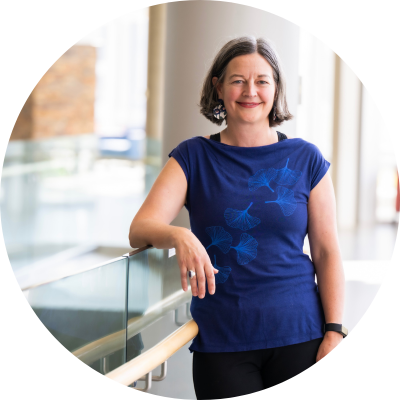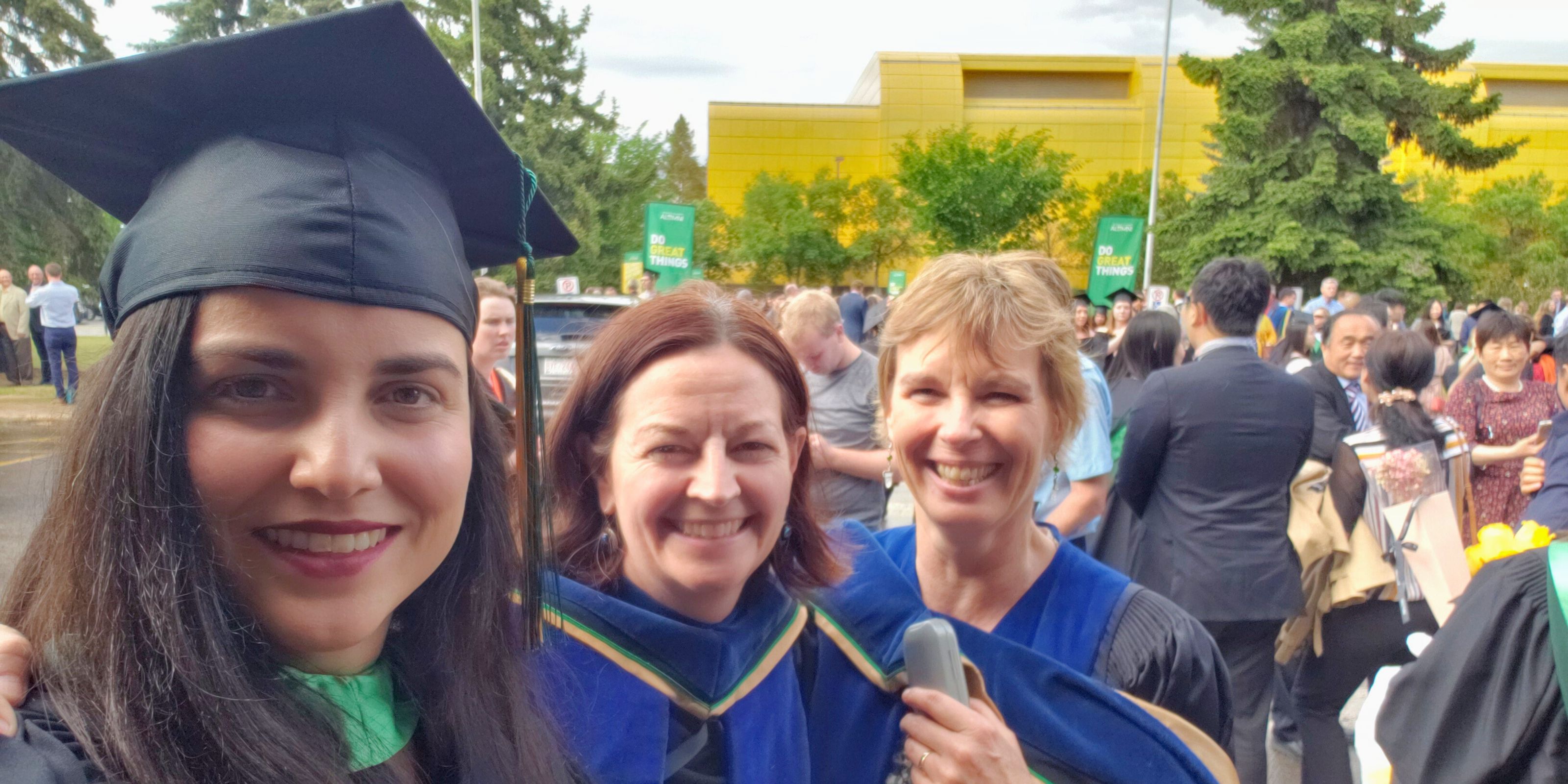With Fall Convocation 2024 happening on North Campus on Nov. 26 and 27, The Quad team met with Anne McIntosh to reflect on convocation and what it means to her as an academic. Anne is an associate dean of teaching and associate professor of biology at Augustana Campus where she teaches undergraduate courses, including statistics for natural sciences, ecology and plant biology. At North Campus, she’s an adjunct professor with the Department of Renewable Resources where she supervises graduate students. Her research focuses on how plant communities recover after disturbance, particularly on reclaimed well sites.
What does convocation mean to you and why are you excited about it?
Convocation is an important part of the whole academic journey. It’s the final hurrah, the pomp and circumstance piece of accomplishment of a student’s degree. It's a time of celebration (and probably relief) for students. I enjoy it and volunteer at Augustana Campus’s convocation. This past June, I was the name reader; in that role when I was up on the stage and saying each person's name, I had feelings of joy and pride for their achievements.
I’m excited about this fall convocation as my master's student Hailey will travel back from her family home in the United States to convocate. We'll head out afterwards to celebrate and I get to meet her parents. With convocation, I enjoy meeting students’ families, celebrating with them and telling them firsthand that they have an awesome, amazing child.
When you were convocating from your past degrees why did you enjoy the experience? What does it mean to you looking back?
I look back on them with a lot of sentimentality. I didn't participate in my undergraduate convocation at UBC because I was tree planting and felt I missed out on something. So I did some more degrees to make up for that. I can remember my mom coming to attend my master’s convocation at Oregon State University. It was meaningful to know she was out there watching while I was lined up with my gown on among my fellow students, with that special energy. I still remember that I was lucky enough to sit next to my best friend, who I’m friends with to this day.
I grew up in Edmonton and ended up back here to get my PhD. My PhD convocation was bittersweet because my dad had passed away and he'd been the reason I came back and did my PhD at U of A. But my other family came, and it was still a celebration. I look back on feeling supported and loved but also wish my dad was there.
What do you like about teaching? How do you mentor students?
I came to this position because I love teaching and witnessing the moment a light goes on in a student’s mind when they learn. My goal is to get students more excited about their learning. For instance, I teach statistics and try to make it more relatable. I’ll reference something like its use in election years, or the impact of Taylor Swift on football viewership. This helps get the students a little more interested, and they develop their skills to appreciate things better. I think it’s important to teach critical thinking skills and motivate students to research, have more curiosity about the world and do amazing things, whatever that looks like for them.
With mentoring, I do it in different capacities. I have more informal mentoring of having my door open and students come by to chat with me. I host information sessions about grad school — how to apply, and how to support yourself with funding opportunities. I lead a lab group that becomes more active in the summer when I get interns from Augustana and beyond. In my classes, I encourage life-school balance and then model it by setting boundaries like not answering emails on the weekends when I am spending time with my family. In turn, I don’t want students to be workaholics and instead find balance. My classroom and lab are both a circle of braveness and as such, I encourage my students to take various modules, like the Indigenous Canada online course.
How do you keep in contact with past students?
It's tricky because everybody's busy. I keep in touch mainly through emails and often help my students with reference letters. Sometimes it's just keeping up on Facebook or Instagram. One of my students is in med school right now and after she posted about struggles advocating for family physicians amidst the challenges with the provincial government right now, I reached out to get a copy of her letter as a starting point for me to write one. Just this past weekend I got to catch up with a former student at a local music show.
I invite students who have worked with me, to my annual summer lab barbecue. It’s a time for everyone to come together and share updates both personally and professionally.
My current postdoc Raiany was originally a MITACS intern in 2015. She came from Brazil to work with me for the summer, and then she did her master's with me. She's my first graduate student who convocated, and it was fun because Raiany was co-supervised with my own PhD supervisor. We joked that we had three academic generations - grandmother, mother and daughter at her master’s convocation. Now with a MITACS Elevate postdoctoral fellowship, she and I are working with the Wood Buffalo Environmental Association in Fort McMurray.
Now looking forward what advice would you/do you offer students that are entering the workforce?
It's great that everybody has their path, and I always tell my students I didn't know what I wanted to do when I grew up when I was their age. I had a curvy path to where I am, so I don’t put pressure on them or expect they have all the answers because part of my mentorship is appreciating that I still don't have all of the answers.
It sounds a little bit cliche, but I recommend they follow their own path. I was chatting to a colleague about You Be You, a children’s book I love. It’s about fish swimming. Some fish are big, some are small, some are this, some are that. In the end, it's message is you be you, you swim. I think there’s so much pressure on what students are going to do with their lives after graduation. I advise students to look not just at the amount of knowledge that they gain in university, but more at the amount they learn about themselves and the relationships they make. Some of my best friends through all these years are friends that I met during university who have stuck through the long haul. I would offer to students to keep enjoying their experiences.
A dear friend gave me this advice that has stuck with me, “Don't trade happy now for maybe happy later.” We're so focused on what comes next that we often forget to enjoy what's going on right now. And so my advice is to be happy now.

